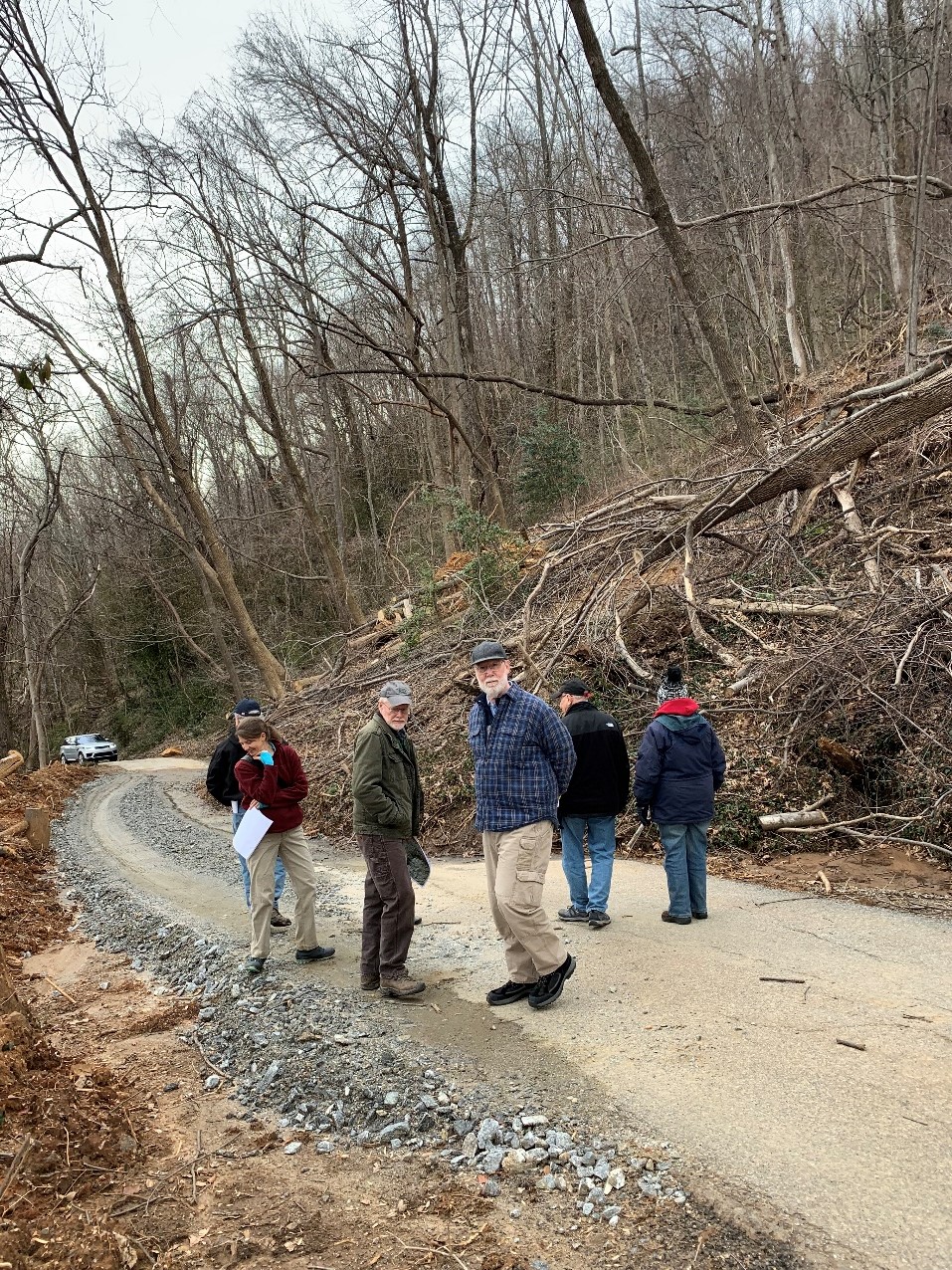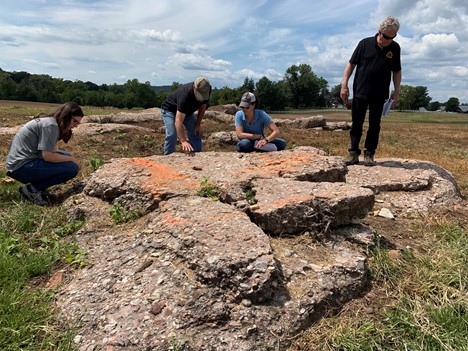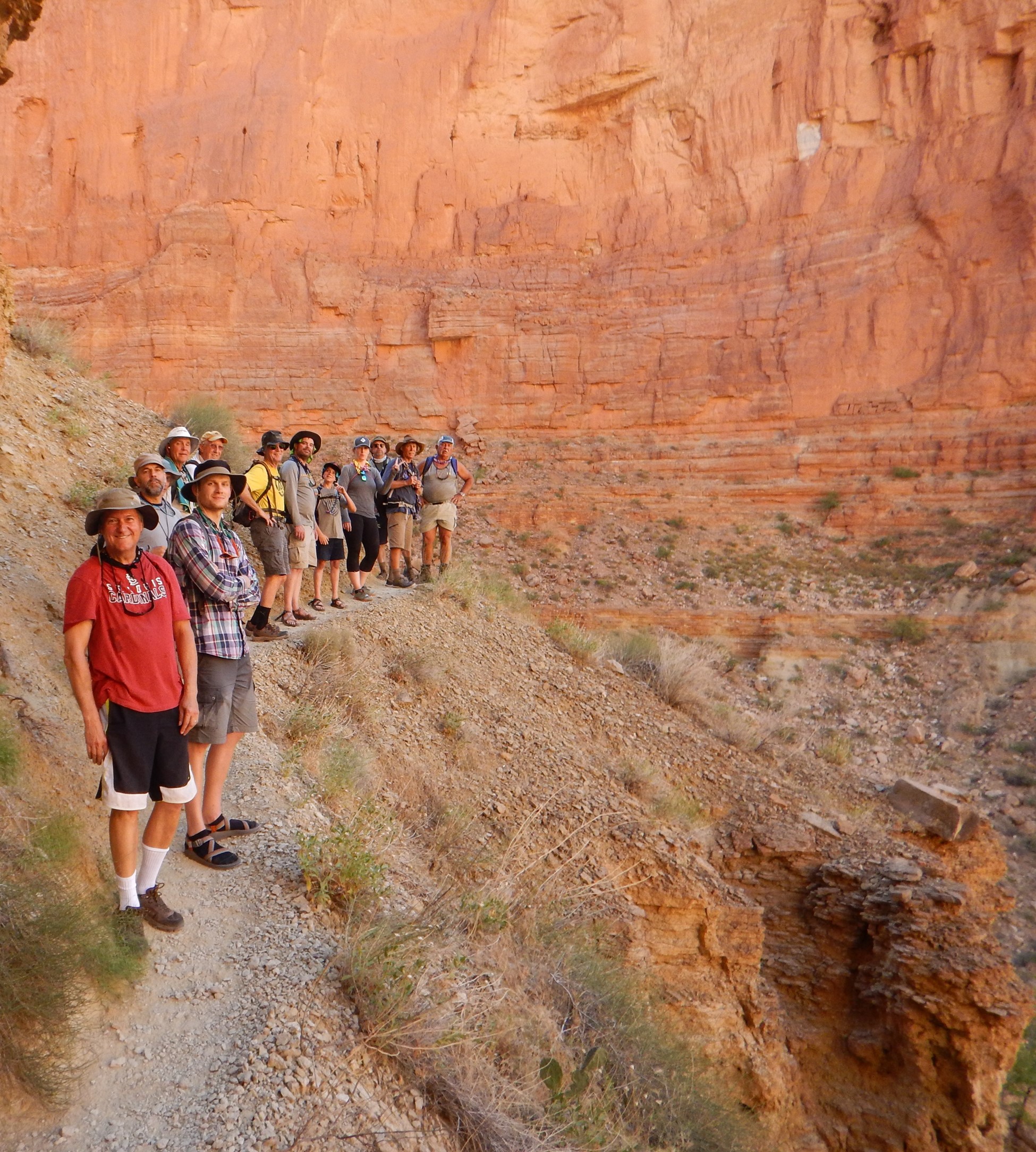How Important is Field Work to my Career as an Applied Geologist?
This blog originally appeared on December 1, 2020 and has been reissued.
Of all the STEM fields (science, technology, engineering and math), geology may be the one science where it is perhaps the most instructive and imperative to do your most significant work outside of an office or lab. As the study of the Earth and its processes, you will benefit greatly from time spent in the field, observing, measuring and studying the movement and interplay between soil, rock, water, environmental factors and engineered works.
Field work is an opportunity to practice a variety of techniques that will greatly assist you in your career. You will learn how to effectively take notes and measurements, hand-draw maps and sketches, use GIS or drawing software to create digitized versions of your mapping, take relevant photos to record your observations, synthesize findings and create a thorough field report.
Whether you are a current student working towards finishing your degree, or a professional applied geologist already employed in the profession, ongoing field work and field trips are an invaluable part of your lifelong ongoing education. And regardless of your future position title, ongoing field work is likely to be an important part of your job.

Benefits of Field Work
There are many benefits of field work, particularly for those who enjoy the great outdoors. If you chafe at being in an office environment and enjoy physical activity, hiking and fresh air, for these reasons alone field work can be wonderfully beneficial in cultivating a less-stressful and more fulfilling work life.
But there are plenty of other benefits of field work including:
Bonding with fellow students and colleagues. Most field work involves teamwork. It fosters great connections and having a collection of hands and minds working together towards a common goal leads to better, more accurate results than solo work.
Getting to travel and see the world. Many applied geologists list this as one of the greatest perks of their profession. Geologists are often able to see some of the most impressive natural wonders of the world as a result of their career.

Applying what you’ve been studying in class to hands-on, real-life situations. It is also a chance to apply the use of geological and surveying tools to actual landscapes. There are a plethora of tools and instruments that may need to be used by the professional applied geologist in the course of their work. Field studies and field trips will give students and those participating in continuing education the opportunity to learn how to use tools such as:
- A Jacob’s staff to measure thicknesses of rock outcroppings,
- Compass clinometers (like a Brunton Compass) to measure the dip and strike of exposed beds,
- Stereoscope to view aerial photographs in 3D,
- Magnifying lenses for examining fine details of rock and soil features,
- Sieves, shakers and riffle boxes for sifting and analyzing sediment,
- Dip meters for groundwater monitoring,
- UAV/Drones for taking overhead footage of an area,
- Range finders for measuring distances between two targets or features,
- GPS trackers for pinpointing locations,
- XRF Analyzers to determine the elemental composition of the material being scanned,
- Magnetic susceptibility meters to find concentrations of metals such as iron,
- And many other tools, plus new, emerging technologies.
What is Field Work Really Like?
If you’d like to see what field work in action actually looks like, check out this example of a media specialist that followed a student geology field course and discusses why she loved working in the field!
YouTube Video:
The Association of Environmental & Engineering Geologists offers some of the best field trips in the industry. The COVID-19 pandemic has hindered our ability to host them for now but we expect to begin offering first-class field trips again as soon as we are able. Be sure to check our calendar of upcoming events.

Are you a working geologist? How important has field work been to your career? Let us know in the comments below and please post photos of your field work adventures either here or on our social media!


Field work is the foundational experience, in equal measure with rigorous classwork, for a career in applied geology. I cannot think of one project in over three-decades of professional work that did not involve a field component in some manner. But to understand and fully decipher a project site setting, I've learned to continually revisit a range of geological sub-disciplines (mineralogy/rock identification, fault mapping, glacial landforms/deposits, sequence stratigraphy, regoliths, pedogenesis, and of course, geomorphology). Basic field skills are beyond essential - they're indispensable. And at the end of the day - field work is the most rewarding part of the job. You learn something from every site. Brad Miller #19051 Lexington, MA